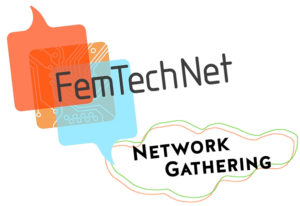Data & Society Research Institute is seeking a dynamic and expert individual to manage our research and intervention efforts on a project focused on the role of technology in the manipulation of institutions and information intermediaries. This position is based out of our New York City office, and starts immediately.
Manipulation Project: Understanding How Systems are Gamed
While technologies are often created with the best of intentions, they are often used in ways that dismay their creators. As data-driven and social technologies – and the companies that produce them – become more powerful, so do the individuals and groups attempting to undermine or manipulate tech to advance other agendas. From cybersecurity to spam and search engine optimization to the manipulation of mainstream media, we must confront the weaknesses and fault lines that appear in a technology and data-driven society.
At Data & Society, the Manipulation Project seeks to understand the mechanisms by which adversarial attacks on institutions and information intermediaries wreak havoc on countless systems, undermine trust in society, and destroy key mechanisms of social infrastructure– and the subsequent socio-technical implications. Conversations about topics like “fake news” or AI-powered bots fail to account for how and why systems can easily be gamed. This project aims to cut through the hype around these issues, and understand vulnerabilities in socio-technical systems that go beyond security and privacy. How can systems be manipulated? And what are the implications of that kind of manipulation?
Responsibilities:
- Daily management of a team of 4-5 researchers, including oversight of workplans, project schedule, deliverables, and project budget.
- Develop overall research project strategy in collaboration with Data & Society leadership
- Coordinate a network of ~20 scholars, journalists, and researchers to strategically share insights, data, and frames.
- Manage team resources proactively, identifying new staffing needs as necessary.
- Develop and own the process of providing regular written and verbal briefings to key stakeholders in civil society, media, and industry.
- Build and maintain a map of academic and advocacy work happening within and beyond the D&S network on these issues, and track the arguments and discussions taking place in various venues.
- Work closely with our research, programs, and communications teams to ensure that our research is being strengthened through engagement with stakeholders, and disseminated in appropriate formats to key decision-makers.
- Develop a trusting relationship with scholars, knowing when to shine a spotlight on them and their work and when to step in to help with translation.
- Build and maintain relationships with key stakeholder groups in this space.
- Balance between advancing a longer-term strategy and responding to unforeseen but highly relevant events.
Qualifications:
- A passion for supporting research and researchers to work towards advancing knowledge collectively.
- Extensive project management experience in fast-paced knowledge production environments.
- Deep familiarity with debates related to those currently emerging under frames like “fake news” and media manipulation.
- Experience connecting research findings to advocacy and/or policy recommendations (including using research to challenge approaches being taken).
- Comfort and experience working between business/tech industry actors, government, civil society, and research.
- A high level of comfort with digital security tools (e.g., PGP, Tor, Signal, etc.).
- Excellent writing and editing skills; public speaking skills a plus.
- Willingness to play a visible leadership role in representing Data & Society’s work and broader research network to other audiences.
We expect that the right candidate for this position is mid-career and has spent a 5-7 years in a technology company, media institution, or research institute/think tank, and has managed investigative or research teams in the past.
Deadline: Monday, April 3, 2017
Full position posting and application details
To Apply: please submit the following to jobs@datasociety.net
- A cover letter explaining your interest in this role, how you learned about this opportunity, how you approach project management of research efforts, and how you see the issue of manipulation unfolding at the intersection of technology and society today. (Please also include the names, affiliations, and email addresses of two references)
- Your resume/CV
The work and wellbeing of Data & Society is strengthened by the diversity of our network and our differences in background, and provides equal employment opportunities (EEO) to all employees and applicants without regard to race, age, creed, color, culture, experience, national origin, religion or ancestry, genetic information, gender identity or expression, sexual orientation, ability, pregnancy, and more. We welcome applications from people of color, women, the LGBTQIA community, and persons with disabilities. In addition to federal law requirements, Data & Society complies with applicable state and local laws governing nondiscrimination in employment.




 An exciting opportunity has arisen at the
An exciting opportunity has arisen at the  Invitation to join members of the
Invitation to join members of the